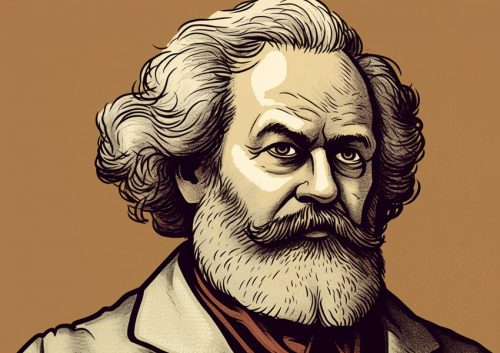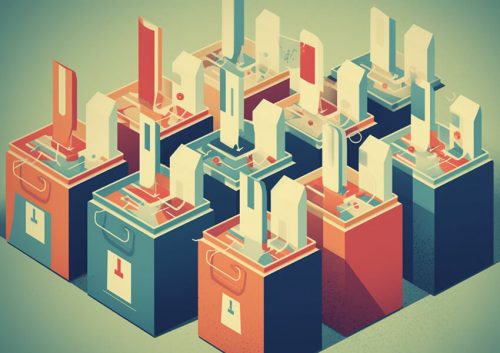Socialism, as a political ideology, has evolved over time, giving rise to various interpretations and implementations. Two prominent branches of socialism that often spark debates and discussions are democratic socialism and classic socialism.
While both share a common concern for social justice and equality, they differ significantly in terms of their approach to governance, economic systems, and individual freedoms. In this blog post, we aim to explore and clarify the distinctions between democratic socialism and classic socialism, shedding light on their fundamental differences.
Defining Classic Socialism
Classic socialism, also known as traditional socialism or Marxist socialism, emerged in the 19th century as a response to the perceived injustices of the capitalist system. It advocates for the collective ownership of the means of production, distribution, and exchange. In a classic socialist society, the government or the state assumes control over key industries, such as factories and natural resources, aiming to achieve economic equality by eradicating private ownership.
The central tenet of classic socialism revolves around the idea of a classless society, where workers collectively control and benefit from the fruits of their labor. It seeks to address issues of wealth disparity, exploitation, and systemic injustice inherent in capitalism. This vision often involves a planned economy, where the government makes key economic decisions and allocates resources to meet societal needs.
Understanding Democratic Socialism
Democratic socialism, on the other hand, integrates socialist principles with the framework of democracy. It recognizes the importance of individual liberties, civil rights, and political participation alongside economic equality. Democratic socialism advocates for a mixed economy, where a combination of public and private ownership coexists, aiming to balance the benefits of a market economy with the welfare of society.
In a democratic socialist system, social welfare programs and safety nets play a crucial role. The government takes responsibility for ensuring access to essential services such as healthcare, education, and housing, while also regulating and redistributing wealth to reduce inequality. While some key industries may be publicly owned, democratic socialists generally endorse the coexistence of private enterprise and competition within a framework of social and environmental responsibility.
Key Differences
Approach to Governance
Classic socialism often advocates for a centralized state with significant control over the economy and decision-making processes. Democratic socialism, in contrast, emphasizes participatory democracy, empowering citizens to actively engage in political decision-making through free and fair elections and civic participation.
Economic Systems
Classic socialism favors the complete abolition of private ownership, advocating for a planned economy directed by the state. In democratic socialism, private ownership is allowed to a certain extent, and market mechanisms are often employed alongside social welfare programs to achieve equitable outcomes.
Individual Freedoms
Democratic socialism places a strong emphasis on protecting civil liberties, human rights, and individual freedoms, striking a balance between economic equality and personal autonomy. Classic socialism, while focusing on economic justice, may be more willing to restrict certain individual freedoms in favor of achieving collective goals.
Reform vs. Revolution
Democratic socialism often seeks to achieve its objectives through gradual reforms within the existing democratic systems, aiming to create a more equitable society. Classic socialism, in contrast, may be more inclined towards revolutionary change, seeking to overthrow the existing capitalist order and establish a socialist system from scratch.
IS Democratic Socialism Even Possible?
While there isn’t a universally agreed-upon definition of what constitutes a democratic socialist country, there are countries that have implemented social democratic policies and have achieved notable levels of social welfare and economic prosperity.
One country often cited as an example of successful social democracy is the Nordic country of Sweden. Sweden has implemented a comprehensive welfare state, combining a robust social safety net with a market economy. It provides universal healthcare, quality education, and a strong emphasis on income redistribution. Sweden consistently ranks high in various indicators of social well-being, including education, healthcare, and quality of life. The country also boasts a strong economy and high standards of living for its citizens.
Denmark is another country often mentioned in discussions of successful social democracy. It has implemented extensive social welfare programs, including universal healthcare, free education, and generous unemployment benefits. Denmark places a strong emphasis on work-life balance and has achieved high levels of social cohesion and economic stability. It consistently ranks well in global happiness indices and measures of social equality.
Norway and Finland are also frequently referenced as successful social democratic countries. Norway has a large welfare state and benefits from its significant oil reserves, which have helped fund its social programs. Finland, known for its high-quality education system, also implements social policies that prioritize equality and well-being.
It is important to note that while these countries implement social democratic policies and have achieved considerable success in terms of social welfare and economic stability, they still operate within a market economy framework. They have found a balance between a mixed economy, free markets, and robust social programs to create societies with high standards of living and strong social cohesion.
Democratic socialism and classic socialism share the goal of addressing economic inequality and achieving social justice. However, they diverge in their approaches to governance, economic systems, and the balance between individual freedoms and collective welfare.
Democratic socialism seeks to combine elements of socialism with democratic principles, fostering a society that promotes both economic equality and individual liberties. Understanding the distinctions between these ideologies is crucial for informed discussions on the future of governance, as we navigate the complexities of a rapidly changing world.






















